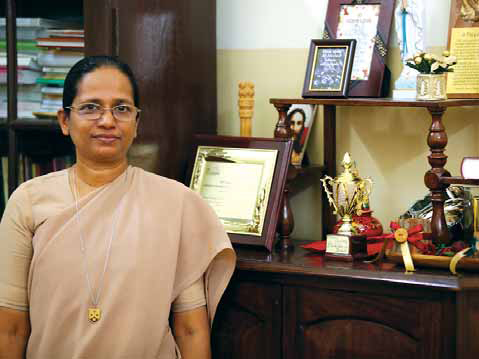
With a mere 50 students on its rolls in 1948 to a count of 5,500 in 2015, Mount Carmel College (MCC), Bengaluru traces its roots to India in the post-independence era and to the spirit of addressing women’s empowerment by the Congregation of Carmelite Sisters of St.Teresa (CSST). The Vasanth Nagar campus at Bengaluru resonates with a spirit of diversity and inclusiveness amongst students and faculty in modern times with a sombre reminder of the Roman Catholic religious order dating back to the 12th century, founded by ‘The Order of the Brothers of the Blessed Virgin Mary of Mount Carmel’ or Carmelites.
MCC was a conscious attempt to bridge gaps in women’s education by the Carmelite Sisters and began its journey in Trichur in 1944 as Carmel College, Kerala. The college was initially affiliated to the then Madras University and finally transferred to Bengaluru on July 7, 1948. During the time, the minority run institution was affiliated to the Mysore University and it was only in 1964 that MCC came under the mantle of its present parent body – the Bangalore University. Although, started as an institution for educating Catholic students, it has shaped up as an autonomous institute since 2005, acknowledging the presence of young bright women students and faculty from diverse castes and creeds on its campus that rings with the spirit of freedom and camaraderie.
Since 1999, MCC has been awarded the highest ‘A’ grade by the National Assessment and Accreditation Council (NAAC). Besides, the college is ranked amongst the top 20 colleges in all three streams - humanities, science and commerce, as per the all India college survey undertaken by India Today and The Week magazines. MCC was re-accredited with an A+ by the NAAC in 2006. It was one of the colleges selected by the University Grants Commission (UGC) under the scheme, ‘College with Potential for Excellence (CPE)’in 2006.
To this day, students past and present take pride in their ‘Carmelite’ consciousness which was anointed by its founding principal Sr. M Antoinette (1948 to 1968), with the spirit being kept alive by Dr Sr. Arpana who took over as the eighth serving Principal of MCC on February 1, 2014. A member of CSST, Sr. Arpana has been serving Mount Carmel College for over two decades. An alumnus of MCC, she joined the college as a student in 1985 and progressed as faculty in 1991.
Corporate Citizen spoke to Sr. Arpana, Principal and Suma Singh, HOD, Department of Economics and Internal Quality Assurance Cell (IQAC) Coordinator, on MCC’s journey – the trials and challenges that make MCC not just an institution marking women as the core point of society but which has had men knocking at its doors wishing to partake in the quality education that is imparted by the institution. With approvals in place, this might be another ‘history in the making’, for MCC
“The unique thing about the college is that we have never advertised. We are one of the few colleges which have never advertised, as the management strongly believes that we need not advertise,” said Suma Singh.
But, does MCC need any further introduction? It speaks volumes through its strong lineup of empowered women alumni - the likes of and CMD, Biocon Limited, Maya Sharma Senior Journalist, NDTV, Nisha Millet and Ashwini Nachappa, the international athlete sand Pragna Patel - renowned human geneticist. The legacy has been further heralded by other prominent Carmelites - Vasundhara Das - singer and actress, Renuka Chowdhury - politician, Gita Aravamudan – Bengaluru’s very first lady reporter, Ms. Margaret Alva - Governor of Uttarakhand, and current Bollywood heartthrobs Deepika Padukone and Anushka Sharma, to name just a few. Here’s an excerpt from the interview.
Sr. Arpana: Since its inception in 1948, MCC has worked towards its mission of ‘Empowering Women through Education’. Over the decades, we have evolved in terms of the programmes we offer and our rapidly increasing student strength. Our strong commitment is to provide quality education and for this, we have kept four parameters in mind – recruitment of the best faculty available, evolving of our existing programmes according to changing market demands, strengthening our core curriculum within set guidelines but to national standards, and constant enhancement of infrastructural facilities. MCC’s ability to revamp and innovate has largely contributed to our success.
Sr. Arpana: Our values have not changed with time as we are guided and committed to our vision and mission of providing quality education to all sections of the society and use education as a catalyst of change. Being a women’s college, we do realise the multiplier role that we have to discharge. Our education moulds the young women to become confident, empowered women who can go on to become the transformation agents in their family, society and nation. We have also focused on imparting legal and financial literacy to the young women. Embracing technology has been a slow process. But I do realise that in future classrooms, the mode of teaching will be technology-driven. So, I have taken some initiatives to break the resistance to technology among the staff and I am confident we will successfully make the transition to a technology, driven teaching and learning process.
Our strong commitment is to provide quality education, and for this, we have kept four parameters in mind – recruitment of the best faculty available, evolving of our existing programmes according to changing market demands, strengthening our core curriculum within set guidelines but to national standards, and constant enhancement of infrastructural facilities
Sr. Arpana: The introduction of the CBCS system or the Choice Based Credit System. Under this criterion, students have the choice to opt for a subject from another stream of their choice. For instance, commerce students can take up or opt for a subject in the science programme or from the curriculum in Humanities. Likewise, Humanities students can take up something in other streams. This is again based on UGC guidelines. We have made this transition last year for our PG courses and this year for our UG courses.
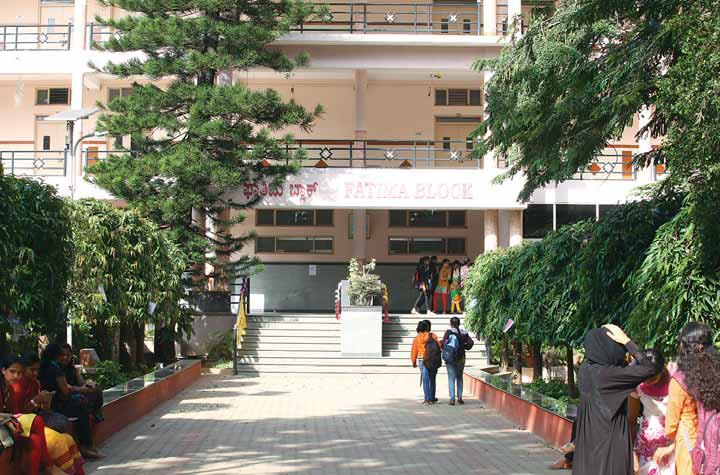
Sr. Arpana: We are not an elitist college and students from all backgrounds and states study here and we value this diversity. In general, the quality of students for regular undergraduate programmes has been not very satisfying in recent years. This is a reflection of the weakness in our schooling system and also that the best students are gravitating to professional programmes like law and engineering.
Suma Singh: Some 30 to 40 years ago - during the ‘60s and ‘80s, MCC was seen as an an elitist institution. We were, to a certain extent, drawing students from a certain strata of society, the upper income lot. But today if you see the profile, it is very heterogeneous and diverse. We are getting students from all walks of life and all income groups and that is what inclusivity is all about. So, the elitist tag no longer holds good, which also gives us an opportunity as an institution in empowering them through education. 30 to 35 percent of our students are from non-Karnataka regions. We get a lot of kids from North and the North Eastern states. One reason could be that MCC is an all-girls college which they find comforting. The fact that MCC is run by the nuns also makes a difference for parents since they know it is run in a very traditional manner and there is a certain discipline.
Sr. Arpana: With the sharp rise in student intake of say 2,000 students in the late 80s to its current strength of 5,500 students, the ten-acre campus is now small for us. With a 10 to 20 percent increase in intake every year, the burden on retention of staff at competitive pay scales is a challenge. Last year’s student strength of 4,800 has jumped to 5500 in the current academic year. The growing number of new programmes and curricula has also added to other administrative challenges. Staff retention is an additional burden due to the disparity in salary between government aided and non-government aided staff . So, attracting the best of teaching faculty and retaining them, given the shrinking salary grant by the state government is proving to be a big challenge. The salary burden is completely falling on the management. The falling demand for traditional arts and science programmes is also a cause for concern.
Sr. Arpana: The autonomy given to us has bestowed academic freedom but we still have to go to the parent Bangalore University (BU) for final approvals on course directives, as the final degree awarded is under BU’s authorisation. We are dependent on part-funding by the University Grants Commission (UGC) for infrastructure development and other physical facilities and on the Karnataka government for salary grants for our aided staff . Currently, of the 324 staff on board, only 40 teaching staff receive salary grants from the government, the remaining staff depend on the MCC management for their pay cheques - which adds to the management’s financial liabilities. Where do we get the money from? We cannot increase the fees as MCC is still a missionary institution.
Suma Singh: From 1993 onwards, the Karnataka government has stopped giving post approvals. Previously, we managed to get post approvals because of MCC’s status as a minority institution. It meant that if you had a full teaching workload – 16 hours for humanities and commerce, 20 hours for science – you got approval for the post, and the college could fill it up, being a minority institution. You had the freedom to fill it up. With state approval for the post, the salary came from the government. In the past years, such approvals have stopped and it has become the management’s task to bear the salary burden for all these vacancies too.
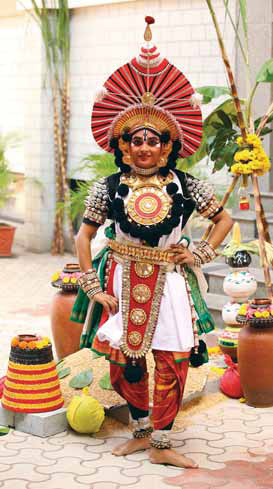
Sr. Arpana: By 2020, a majority of our government paid staff would be retiring, so only a handful, may be five or six teaching staff will continue under government aided salary. So we are heading into a situation where the management will not only have to bear the entire salary burden, but filling up these vacancies with new staff will also become a challenge.
Suma Singh: Karnataka is one of the few states in India which no longer approve posts in educational institutions. Post 2020, while UGC gives grants for infrastructure, library, labs, books, etc., the absence of salary grant from the Karnataka government will affect our finances. With the recent Pay Commission hike, which supposedly was much higher than in previous years, the state government is not in a position now to pass on such grants. Some teachers under the aided criteria also do not get their salaries on time. There is a perception that the higher education teaching community is being paid too high. It is a pretty bad scenario in Karnataka; I don’t know what the scenario is in the other states .Though the government here has withdrawn salary grants, it does not mean that the Karnataka government is not setting up colleges. They are setting up a lot of government colleges, recruiting people and paying UGC salaries in government colleges, but in privately aided colleges like ours, that is not happening.
Sr. Arpana: Our strength is our staff . They are very cooperative and willing to work for the institution and we are able to achieve our mission because even in my absence I have the confidence that the institution will be run with conviction. Despite pay disparities, we have seen everyone overcoming those difficulties and working for the common goal. Though the disparity exists, when it comes to work, everybody contributes and nobody says “I am paid low so will not work”.
Suma Singh: The disparity in salary is huge between those that come under UGC aid and the ones who are solely paid by the management. For instance, at the entry level at MCC right now, with just a degree and a PJA and NET (eligibility test for lecturers) - the basic qualification as per UGC norms - the management is paying a sum of Rs.27, 000 per month. The same person through a government appointment will draw Rs.50, 000. It is a huge difference and over the years it just widens. In comparison, engineering colleges do not have such a problem, because they come under AICTE and managements are compelled to pay AICTE directed salaries - those colleges do not have a choice. But, for institutions like ours, it is up to the management. The other problem is upgrading the staff. To be very honest, we are not always able to draw the best of faculty as our salaries are not on par with our competitors (other institutions). Although we are better than other colleges in terms of management driven salaries, there are also institutions that are paying much more than us. So, we are not able to draw the best of faculty talent.
Students have the choice to opt for a subject from another stream of their choice. For instance, Commerce students can take up or opt for a subject in the science programme or from the curriculum in humanities. Likewise, humanities students can take up something in other streams
Sr. Arpana: MCC presently offers 36 UG and 16 PG programmes. So, from a purely undergraduate college we have evolved to offer PG programmes and hope to start doctoral programs too. The traditional programmes in all the streams - Arts, Commerce and Science continue to exist. Since the 1990s and more so after obtaining autonomy in 2005, we have made a head start in introducing new programmes like Fashion and Apparel Design, Interior Design Management, Nutrition, Travel and Tourism, Communication Studies, Journalism and so on. We have innovated a lot in our most sought after programme in the commerce stream. Apart from the regular UG program in B.Com, we also offer the B.Com, Industry Integrated curriculum with an emphasis on practical exposure. The B.Com Professional programme is for those pursuing professional courses. This year, we have collaborated with TCS and have launched the B.Com- Business Process Systems programme.
Sr. Arpana: Our curriculum is one of the best. But there is always scope for improvement. Hence I have insisted that all departments conduct a curriculum evaluation and Enhancement Workshop with all stakeholders participating in it that includes academicians, alumni, industry, students and parents so that there is a 360 degree feedback. I also believe that faculty must update their knowledge as in today’s world the teacher needs to think ahead of Google.
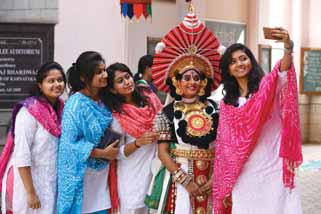
Sr. Arpana: We have a well established Placement Cell. Over 40 companies visit us annually. Most of the openings are for our Commerce stream, so I hope to work on strengthening placement opportunities for other streams too. Our alumni is well placed and well connected. We have alumni representatives in our Board of Studies, which is the body which frames the curriculum. They have instituted scholarships and awards for meritorious students.
Suma Singh: It becomes very difficult for women students to come back to their alma mater and do something as it is a very different life women lead, unlike in the case of boys. We are in the process of building our Alumni Club and we took the initiative recently when we invited Kiran Mazumdar Shaw as a speaker for our Foundation Day celebrations. Hopefully in the process, we will be able to build a better relationship, convince them to get back to the institution. Now, we might start such connect with alumni more regularly.
The diversity you see on campus might not be the same in the wider world as it is a Carmelite institute yet. Our value education classes prepare the girls to have a secular outlook to combat the wider world
Sr. Arpana: Why discriminate and deprive boys access to quality education? We have the necessary infrastructure and best of labs, so to maximise its usage we thought we must allow boys. We have got approval from the Bangalore University to admit boys but have yet to decide on the year of its commencement or take a concrete decision on this. We will be enrolling boys mainly in PG programmes in science, electronics and nanotechnology. We have high end lab equipment here in the college and there has been a low opting of these subjects by girls. So, the management had to take a decision to open the doors to boys too for better use of the facilities on campus.
Sr. Arpana: This has been a much debated issue among our staff and students. Many among the staff have spoken about the need to retain our USP of being a women’s college. The perception about MCC is bound to change once we allow boys on campus.
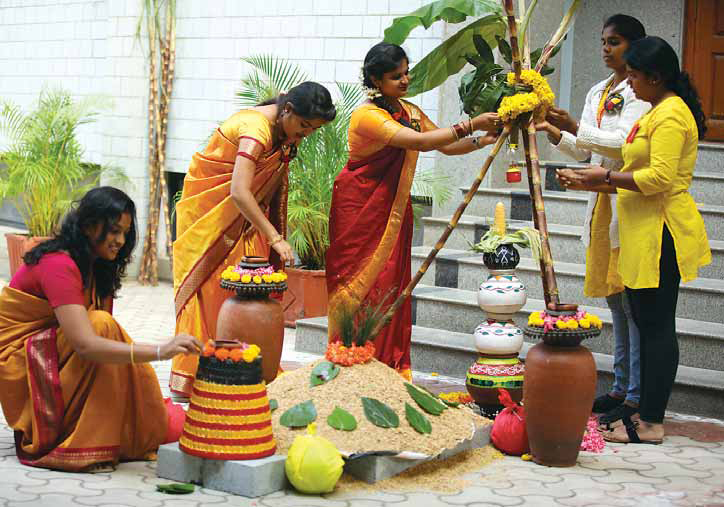
Suma Singh: The government used to run courses for staff through the Academy Staff Colleges for the aided staff in the college. For management paid staff, there are no such refresher courses. Under UGC guidelines, you have to do refresher courses for staff promotion to the next level. So, if I am a government aided staff, I will do it and have to do it to claim my promotion. But, as a non-government aided staff, there is no motivation for me to undertake such a course. So, it finally depends on what policy the management draws. The UGC are now trying to tell us to do some course and present and publish papers. They are trying to bring those rules in place, but then the staff tend to compare themselves with the UGC staff and feel that the aided staff get rewarded at every stage for their effort but they do not, so, why should they go out of their way to do the course. Well, some of the staff do go out of their way to take up such refresher courses but for the majority of the younger teaching lot, the salary component matters a lot.
Why discriminate and deprive boys access to quality education? We have the necessary infrastructure and best of labs, so to maximise its usage we thought we must allow boys. We will be enrolling boys mainly in PG programmes in science, electronics and nanotechnology. We have high end lab equipment here in the college and there has been a low opting of these subjects by girls
Sr. Arpana: We are a socially sensitive institution wedded to the cause of taking education to the marginalised and deprived. The management offers fee concession to over 200 students and also provides mid-day meal facilities to needy students. We have a programme called Industry Integrated for our B.Com and M.Com students where they have to intern with the industry at the end of each semester. Similar programmes are run for our students in biotechnology and communications streams too. It is compulsory to go through these internship criteria. Our Community Development Project (CDP) enables PG students to score marks or credit, so that there is an element of compulsion. The type of projects undertaken is dependent on the streams and their respective departments. Under the CDP programme commerce students have adopted a village. Likewise, different departments have undertaken similar social initiatives on their own.
Whether for credits or to uplift the Carmelite consciousness, the diversity on campus remains it strength and as Sr. Arpana said, “The diversity you see on campus might not be the same in the wider world as it is a Carmelite institute yet. Our value education classes prepare the girls to have a secular outlook to combat the wider world.”
By Sangeeta Ghosh Dastidar